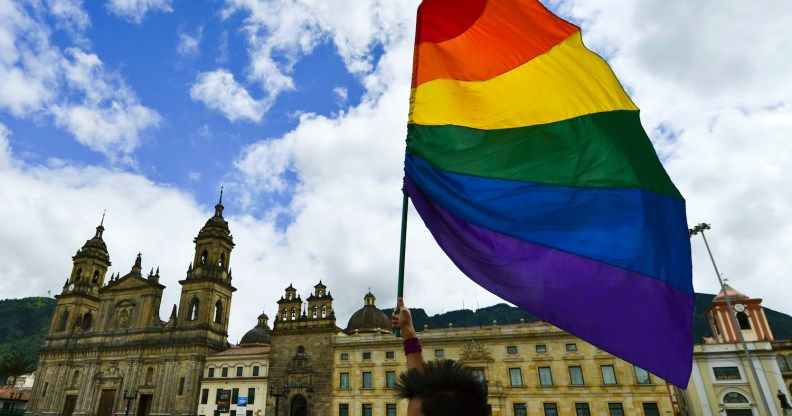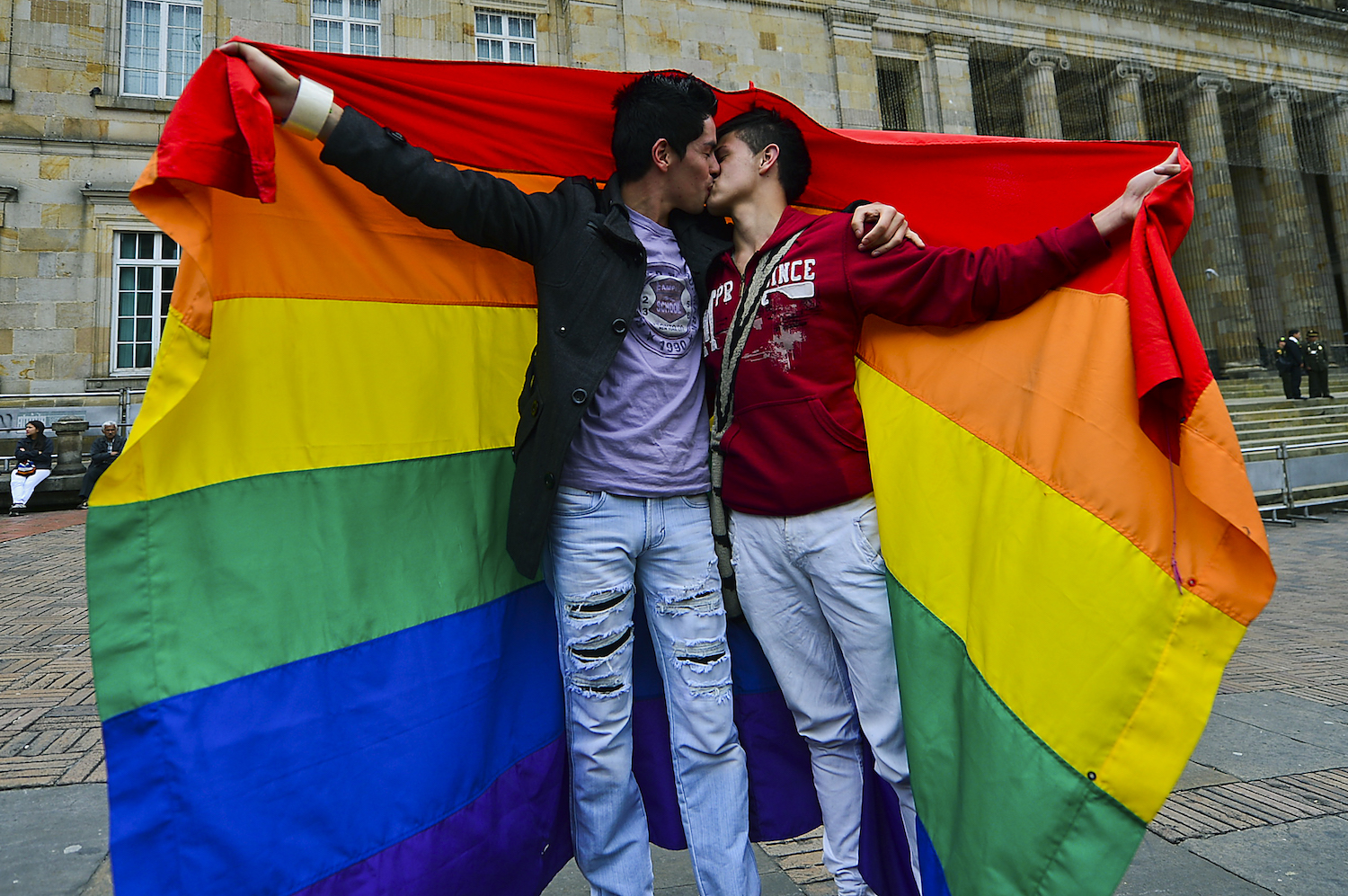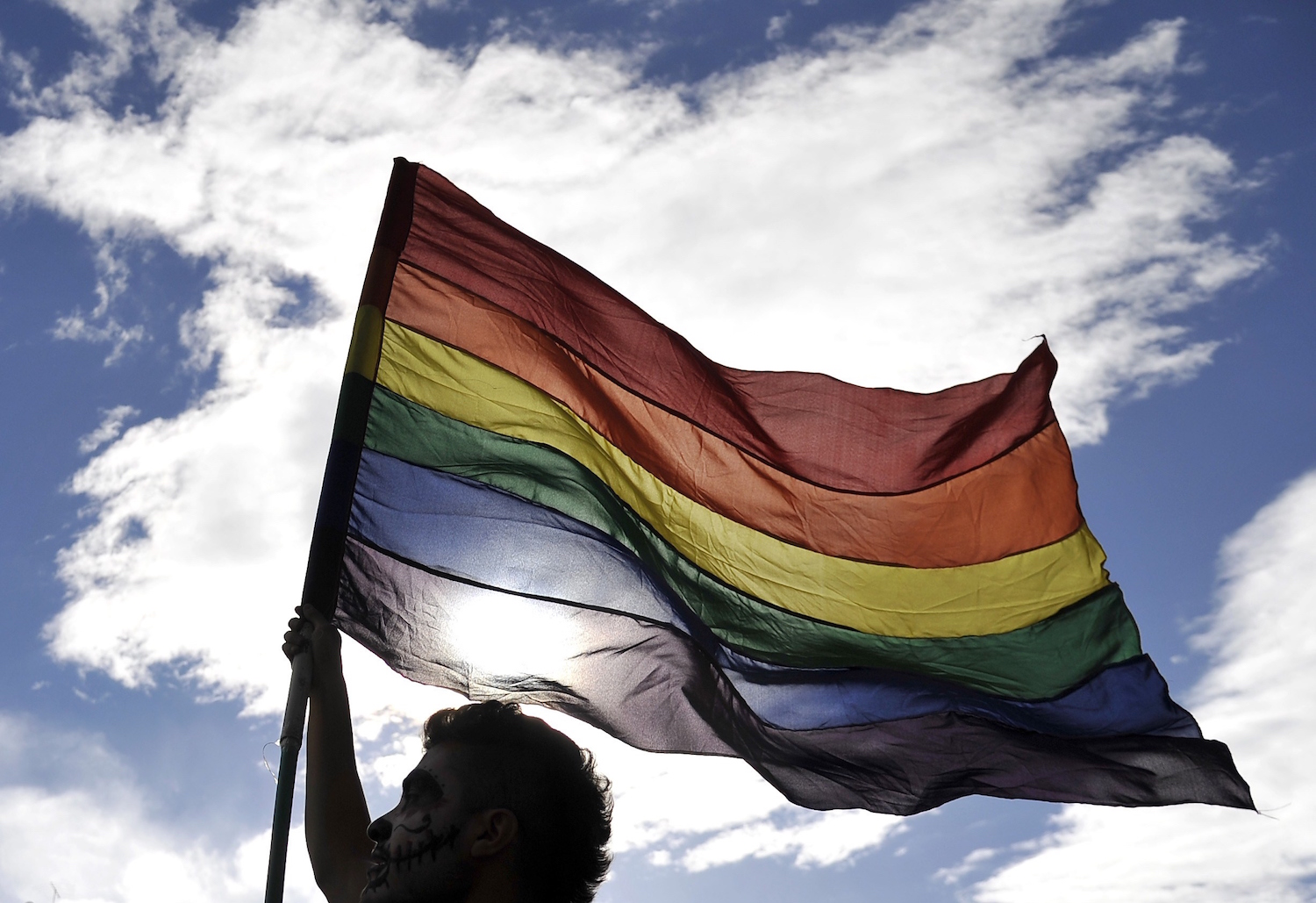Highest court in Colombia legalises equal marriage

The highest court in Colombia has paved the way for same-sex marriage by ruling in favour of equality.
The Constitutional Court ruled on Thursday that same-sex couples have an equal right to marry.

Earlier this month the court rejected an opinion which would have stopped public notaries from registering gay couples as married.
The court ruled 6-3 at the beginning of April, and on Thursday effectively legalised equal marri
Same-sex couples had previously been granted the right to civil unions, but the new ruling means marriages will be available as well.
The court previously ruled in 2011 that same-sex couples should be allowed the same rights as opposite-sex couples when it comes to marriage.
Congress was given two years to pass legislation to legalise equal marriage.
When that didn’t happen, same-sex couples began filing marriage licences, and eventually brought a legal challenge.
Thursday’s ruling was celebrated by campaigners including the Human Rights Campaign (HRC).
“Today’s ruling by Colombia’s Constitutional Court marks an important moment for LGBT Colombians, and we congratulate the country’s many LGBT advocates who helped make this day possible,” said Jean Freedberg, Deputy Director of HRC Global.
“Following victories for LGBT advocates in Ireland in May and in the United States in June, today’s ruling makes clear that global momentum for marriage equality has continued to grow, and we’re hopeful that other nations will provide same-sex couples the right to marry the person they love in the year ahead.”
The court in November lifted a ban on same-sex couples adopting children.
A bill to legalise same-sex marriage was voted down in Colombia’s Senate in 2013.
Earlier this year, Colombia adopted a new gender recognition law – that allows trans people to gain legal recognition without undergoing surgery or seeing a psychiatrist.

The country’s government had moved to amend laws that previously required individuals to undergo” psychiatric or physical examinations before gaining legal rights.
The new process only requires that people submit a form, a copy of their ID card, and a sworn deceleration that they desire to change their legal gender.

